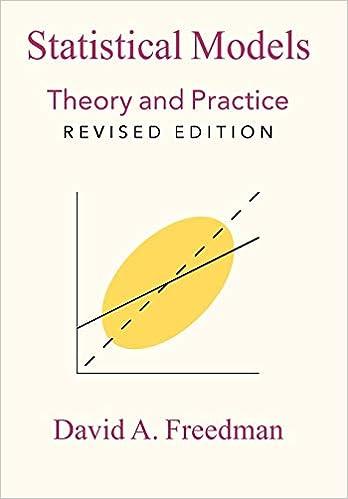Suppose Xi are N (, 2) for i = 1,...,n, where n is large. We use X
Question:
Suppose Xi are N (µ, σ2) for i = 1,...,n, where n is large. We use X to estimate µ. True or false and explain:
(a) If the Xi are independent, then X will be around µ, being off by something like s/√n; the chance that |X − µ| < s/√n is about 68%.
(b) Even if the Xi are dependent, X will be around µ, being off by something like s/√n; the chance that |X − µ| < s/√n is about 68%.
What are the implications for applied work? For instance, how would dependence affect your ability to make statistical inferences about µ?
(Notation: X and s2 were defined in question 7.)
Fantastic news! We've Found the answer you've been seeking!
Step by Step Answer:
Related Book For 

Question Posted:





